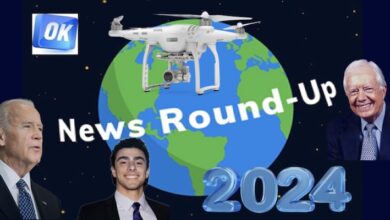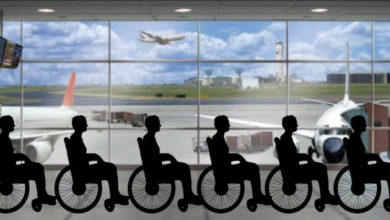TOP SECRET AMERICA
There is a top-secret world within the government that was created in response to the terrorist attacks of 9/11. But it has now become so large and so secretive, no one knows exactly how much it costs, how many people it employs, how many programs exist within it, or exactly how many agencies do the same work.
These are the findings by The Washington Post in a two-year investigation that uncovered a Top Secret America hidden from public view, yet existing and operating right under our very noses. And now nearly 9 years following the greatest terrorist attack in U.S. history, there exists an “alternate” system that is so massive, it’s nearly impossible to monitor.
The investigation’s other findings include:
• Some 1,271 government organizations and 1,931 private companies work on programs related to counterterrorism, homeland security and intelligence in about 10,000 locations across the United States.
• An estimated 854,000 people, nearly 1.5 times as many people as live in Washington, D.C., hold top-secret security clearances.
• In Washington and the surrounding area, 33 building complexes for top-secret intelligence work are under construction or have been built since September 2001. Together they occupy the equivalent of almost three Pentagons or 22 U.S. Capitol buildings – about 17 million square feet of space.
• Many security and intelligence agencies do the same work, creating redundancy and waste. For example, 51 federal organizations and military commands, operating in 15 U.S. cities, track the flow of money to and from terrorist networks.
• Analysts who make sense of documents and conversations obtained by foreign and domestic spying share their judgment by publishing 50,000 intelligence reports each year – a volume so large that many are routinely ignored.
 In the Department of Defense, where more than 2/3rds of intelligence programs reside, only a handful of senior official “Super Users” are permitted to even know about all the department’s activities. And as 2 Super Users indicated in interviews, it is virtually impossible for them to keep up with the nation’s most sensitive work.
In the Department of Defense, where more than 2/3rds of intelligence programs reside, only a handful of senior official “Super Users” are permitted to even know about all the department’s activities. And as 2 Super Users indicated in interviews, it is virtually impossible for them to keep up with the nation’s most sensitive work.
“I’m not going to live long enough to be briefed on everything” one Super User said. Another recalled how, during his initial briefing, he was escorted into a tiny, dark room, seated at a small table and told he couldn’t take notes. Program after program began flashing on a screen, he said, until he yelled ”Stop!” in frustration.
“I wasn’t remembering any of it,” he said.






